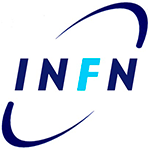Dott. Simone Chicco
Molecular Nanomagnets: a promising tool for quantum information processing
The potential to solve problems with large impact on science, society and economy makes the realization of quantum computers one of the hottest topics in current research. Molecular nanomagnets (MNMs) offer a promising route towards a scalable quantum computer [1]. Being controllable quantum objects, they have in fact attracted a considerable attention as molecular qubits, thanks to their highly engineerable spin Hamiltonians and long coherence times. In addition, the feature that makes them potentially disruptive for quantum technologies is that they naturally provide a multi-level energy spectrum suitable to encode qudits and thus increasing the power of quantum logic applications. In particular, MNMs can be exploited to define qubits with embedded QEC in single molecules [2], circumventing the large overhead in the number of physical units required by standard QEC codes. Here I will show the first working proof-of-concept quantum simulator realized with an ensemble of molecular qudits and a radiofrequency broadband spectrometer [3]. We exploit an ensemble of 173Yb(trensal) qudits [4] to implement the quantum simulation of two different classes of problems: an integer spin subject to quantum tunnelling of the magnetization and a pair of spins 1/2 coupled by Ising interaction in a transverse field. Having correctly reproduced the time evolution of both physical models, we proved the versatility of this prototypical quantum simulator, also making an important step toward the actual use of molecular spin qudits in quantum technologies. This work received financial support from European Union-NextGenerationEU, PNRR MUR project PE0000023-NQSTI, from the European Union’s Horizon 2020 program under Grant Agreement No. 862893 (FET-OPEN project FATMOLS), from the Novo Nordisk foundation under grant NNF21OC0070832 in the call ”Exploratory Interdisciplinary Synergy Programme 2021” and from Fondazione Cariparma. [1] A. Chiesa, P. Santini, E. Garlatti, F. Luis, S. Carretta, “Molecular spins: a viable path toward quantum information processing?”, Rep. Progr. Phys., 87, 034501 (2024). [2] A. Chiesa, E. Macaluso, F. Petiziol, S. Wimberger, P. Santini, S. Carretta, “Molecular Nanomagnets as Qubits with Embedded Quantum-Error Correction”, J. Phys. Chem. Lett. 11, 8610–8615 (2020). [3] S. Chicco, G. Allodi, A. Chiesa, E. Garlatti, C. D. Buch, P. Santini, R. De Renzi, S. Piligkos, S. Carretta, “Proof-of-concept Quantum Simulator based on Molecular Spin Qudits”, J. Am. Chem. Soc., [4] R. Hussain, G. Allodi, A. Chiesa, E. Garlatti, D. Mitcov, A. Konstantatos, K. S. Pedersen, R. De Renzi, S. Piligkos, S. Carretta, J. Am. Chem. Soc. 140, 9814-9818 (2018).





